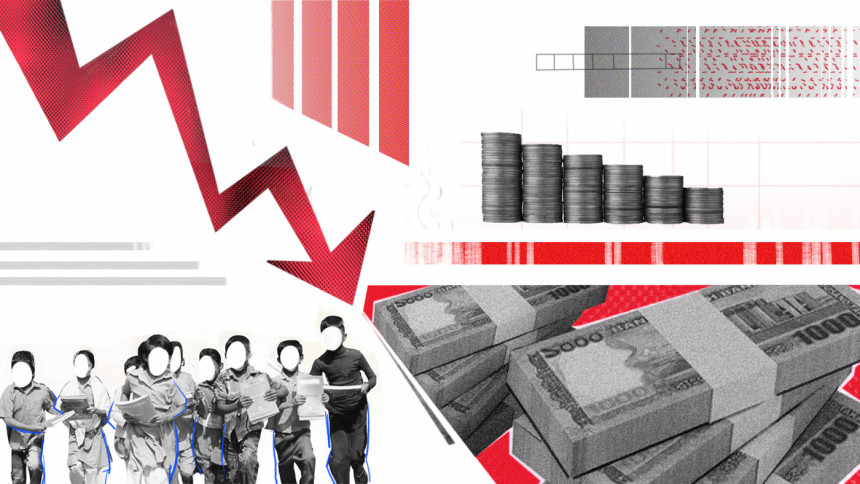Students who didn't pass SSC exams deserve a way forward

This year, nearly six lakh students failed the Secondary School Certificate (SSC) examination in Bangladesh. That number alone should spark a national conversation, not just about the shortcomings of our education system, but also about how we treat those who fall through its cracks. For a country striving for progress, keeping such a large portion of our youth idle for an entire year is not only wasteful, it is self-defeating.
Among these failed students, many have only fallen short in one or two subjects. Yet the system gives them no option but to sit out the entire year, retake their failed subjects the following year, and then wait again to resume regular education. In the process, they lose not just time, but confidence, social standing, and, in some cases, even the motivation to continue. A year of forced inactivity often results in psychological stress, exposure to negative influences, and, at times, involvement in crime. Many become victims of social bullying and family pressure. What should have been a temporary academic setback too often spirals into a permanent life detour.
But this year-long academic purgatory is not merely a personal loss for students, it is also an economic loss for the entire country. If these six lakh students had the opportunity to complete their education without delay and enter the labour force a year earlier, the economy would benefit significantly. Consider this: if each of these six lakh students were to earn even a modest monthly income of Tk 10,000 upon joining the workforce, then by graduating a year earlier, their combined contribution to the economy would be around Tk 7,200 crore in a year. That's Tk 72 billion in GDP loss, simply because we let six lakh young people sit idle instead of studying.
There is a simple fix to this problem. We can easily allow students who have failed in one or two subjects to begin college studies on a conditional basis. They would enrol in college, begin attending regular classes, and simultaneously prepare to retake the failed SSC subjects the following year. If they pass, they move forward with their batchmates. No year lost, no future derailed.
Even better, we should consider reforming our entire high school education structure to a semester-based system spanning classes 9 through 12. Instead of the current model, where students are assessed in a single high-stakes examination after years of study, we could adopt a modular approach. Students would complete courses in blocks, with opportunities to retake failed subjects in subsequent semesters without losing an entire year. Such a system already exists in many developed countries and allows for flexibility, second chances, and more personalised academic paths.
This is not a radical overhaul; it is a rational, humane, and economically sound proposal. We are not talking about lowering standards. We are talking about updating an outdated system to reflect the realities of our society and the potential of our youth. When six lakh students fail at once, it is the system, not just the students, that has failed. And that system needs to adapt.
Bangladesh cannot afford to waste a year of six lakh young lives. The cost is too high—socially, economically, and morally. Let's give these students a second chance, and in doing so, give our nation a better future.
Dr Sibbir Ahmad is a postdoctoral fellow at the University of Virginia and president of Socchar: Torture Watchdog Bangladesh. He can be reached at sibbirahmad520@gmail.com.
Views expressed in this article are the author's own.
Follow The Daily Star Opinion on Facebook for the latest opinions, commentaries and analyses by experts and professionals. To contribute your article or letter to The Daily Star Opinion, see our guidelines for submission.




 For all latest news, follow The Daily Star's Google News channel.
For all latest news, follow The Daily Star's Google News channel. 
Comments